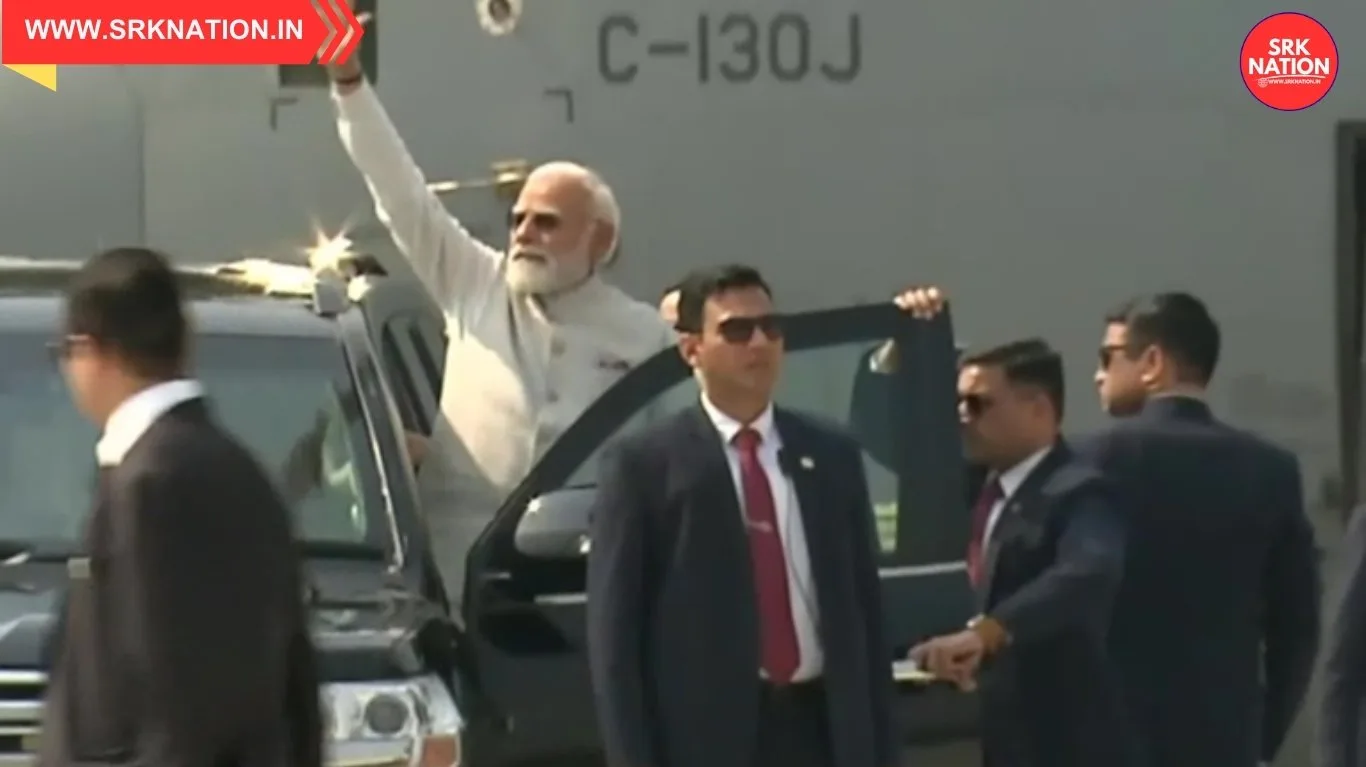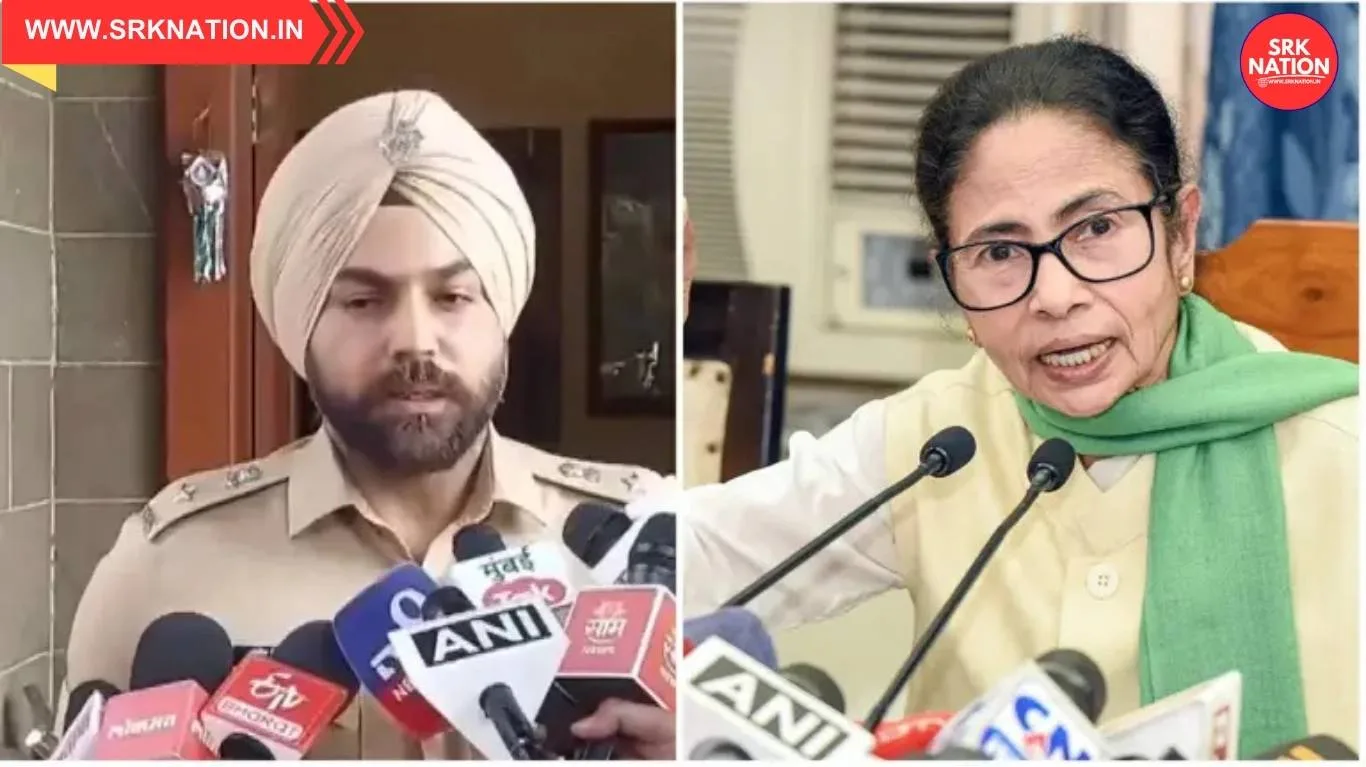In a heated political exchange, the Bharatiya Janata Party (BJP) has turned the spotlight on Congress leader Rahul Gandhi, accusing him of siding with what it calls “ghuspaithiye voters” in the ongoing debate over the State Infiltration Registry (SIR). The comments came amid intensifying discussions over the registry’s implementation, which the BJP claims is essential for identifying and curbing illegal immigration in several states, particularly in border regions.
BJP’s Counterattack on Rahul Gandhi’s Position
The BJP’s sharp response follows Rahul Gandhi’s recent criticism of the SIR initiative, in which he called it an “electoral weapon to divide communities and harass citizens”. BJP leaders dismissed these allegations, instead claiming that Gandhi’s opposition stems from a desire to retain an electoral base allegedly built on illegal immigrant votes.
A senior BJP spokesperson stated,
“Rahul Gandhi’s resistance to SIR is not about protecting citizens; it is about shielding those who entered India illegally and were later added to the voter rolls. This is nothing but political appeasement in the guise of rights protection.”
What is the State Infiltration Registry (SIR)?
The State Infiltration Registry is being projected by the BJP as a comprehensive database to identify non-citizens residing illegally within India’s borders. It is meant to work in tandem with other identification mechanisms like the National Population Register (NPR) and the National Register of Citizens (NRC).
| Feature | Purpose | Expected Outcome |
|---|---|---|
| Biometric records | Prevent identity fraud | Accurate citizen verification |
| Address mapping | Identify infiltration hotspots | Targeted law enforcement |
| Cross-check with NPR & NRC | Eliminate duplication | Streamlined verification |
| Periodic updates | Keep registry current | Stronger border security |
The Political Stakes Behind the SIR Debate
The SIR debate has taken centre stage in states like Assam, West Bengal, and Tripura, where illegal immigration has been a long-standing political flashpoint. The BJP argues that the registry is a national security necessity, while the Congress maintains it is a civil rights violation.
BJP leaders allege that Congress’s resistance is rooted in vote bank politics, specifically in constituencies where migrant communities form a decisive voting bloc.
BJP’s Allegations Against Rahul Gandhi
| Allegation | BJP’s Claim |
|---|---|
| Vote bank politics | Rahul Gandhi protecting non-citizen voters |
| Undermining national security | Opposing registry hampers infiltration control |
| Political appeasement | Targeting SIR to appeal to specific communities |
| Misinformation | Portraying SIR as anti-minority to stir unrest |
Congress’s Defence and Rebuttal
Congress has hit back at the BJP’s accusations, calling them “baseless and defamatory”. Party leaders insist that their opposition is based on protecting constitutional rights, not on shielding illegal immigrants.
A Congress statement read:
“BJP’s SIR plan is another attempt to turn neighbour against neighbour. Instead of building jobs and economic growth, they want to run a government of suspicion and fear. We will resist any policy that violates the rights of Indian citizens.”
Expert Opinions – Security vs Civil Liberties
Security analysts argue that a well-implemented SIR could indeed strengthen India’s demographic data accuracy, but warn against misuse. Civil rights activists, however, highlight concerns about wrongful exclusion, particularly for marginalised groups lacking proper documentation.
| Viewpoint | Supporters | Key Concern |
|---|---|---|
| Pro-SIR | Security agencies, BJP | Border security, prevention of illegal voting |
| Anti-SIR | Civil rights activists, Congress | Risk of wrongful targeting, misuse of data |
| Neutral | Independent think tanks | Implementation must have strict safeguards |
Electoral Impact of the SIR Dispute
The BJP is expected to use the SIR debate as a campaign plank in upcoming state elections, particularly in infiltration-prone regions. By linking Rahul Gandhi’s opposition to “protecting ghuspaithiye voters”, BJP strategists hope to consolidate their nationalist voter base.
Congress, on the other hand, is likely to frame the narrative around citizens’ rights and constitutional protections, appealing to voters who fear government overreach.
Public Reactions Across States
In Assam and Tripura, many residents have expressed support for stricter infiltration checks, citing concerns over cultural erosion and resource competition. In contrast, parts of West Bengal and Kerala have shown mixed responses, with fears of bureaucratic harassment for legitimate citizens.
SIR Implementation – The Road Ahead
The central government has indicated that pilot projects for the SIR will begin in border districts by early next year. If successful, the registry could be rolled out nationwide, though legal challenges are expected.
| Implementation Phase | Timeline | Priority Areas |
|---|---|---|
| Pilot registry setup | 2025 Q1 | Assam, Tripura border districts |
| Data verification drive | 2025 Q2-Q3 | Northeast, West Bengal border zones |
| Integration with NPR/NRC | 2025 Q4 | Pan-India readiness |
| Nationwide rollout | 2026 | Subject to court approvals |
BJP’s Political Messaging
BJP leaders are set to repeat the “ghuspaithiye voters” charge in rallies, TV debates, and social media campaigns. The narrative positions Rahul Gandhi as a barrier to national security rather than a champion of citizen rights.
Party strategists believe this framing will resonate with urban and border-area voters, where concerns over illegal immigration have historically influenced electoral outcomes.
Conclusion – A Battle of Narratives
The SIR debate has now moved beyond policy into the realm of political identity battles. The BJP is framing it as a fight for national integrity, while Congress warns of an erosion of democratic freedoms. With elections on the horizon, the clash over infiltration and citizenship verification could become one of the defining issues of the political season.
Disclaimer: This article is based on political statements, party positions, and publicly available information. It does not endorse any political viewpoint and is intended for informational purposes only.











